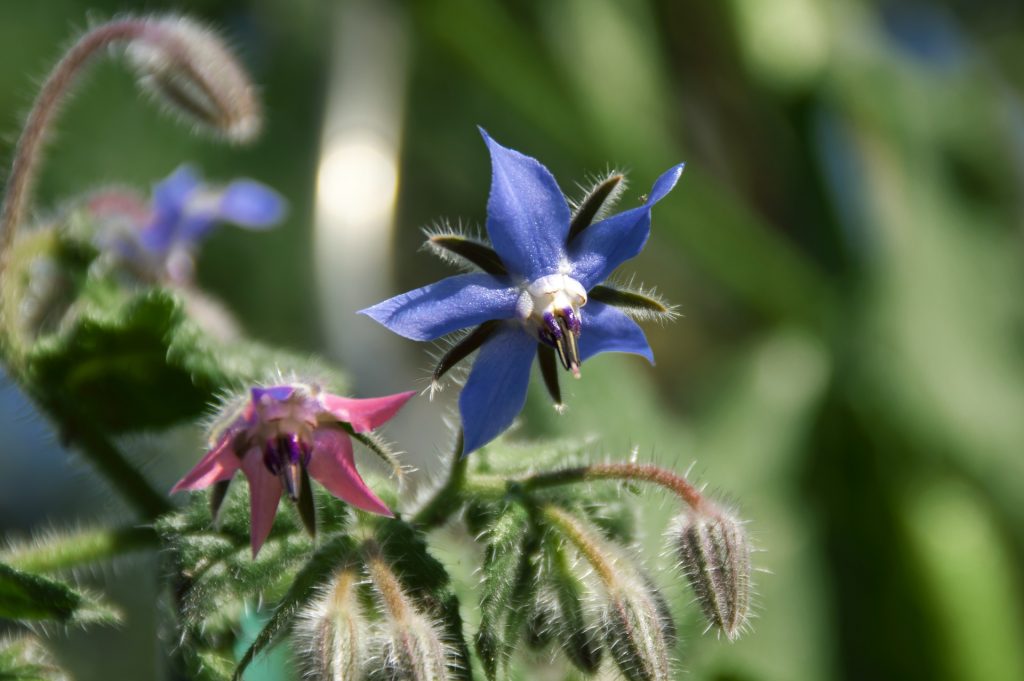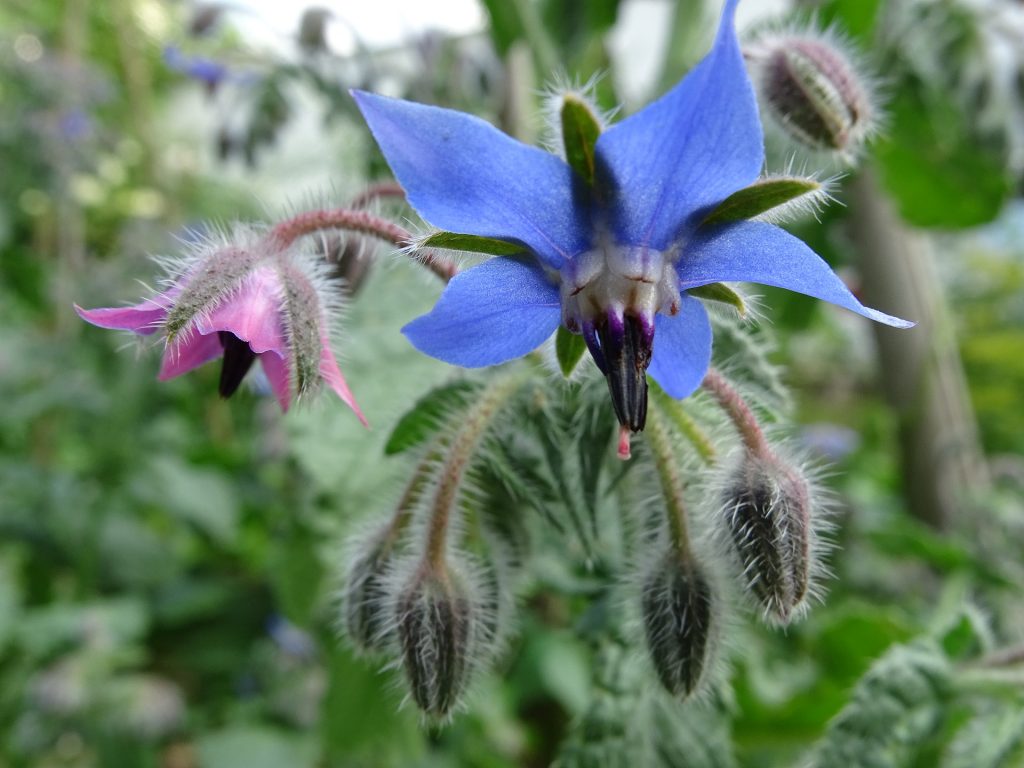 Borage (Echium amoenum) is an annual herb that grows natively in the mountains of Iran, regions of the Mediterranean, as well as across parts of Europe. Borage is also commonly called starflower and account of its star-shaped flowers, and it belongs to the Boraginaceae family of flowering plants. Borage has edible leaves and flowers that contain phytochemicals that might be useful in the treatment of a number of disorders. Historically the plant has been used medicinally, with Roman, Greek and Persian records showing its use. In traditional medicine, borage is used as an anti-inflammatory, analgesic and anti-viral especially for the common cold, and may also have properties as a diuretic, laxative, emollient and demulcent. Evidence suggests that borage extract may also have anxiolytic and sedative properties that make it useful in the treatment of generalised anxiety disorder (GAD), and it may possess mood enhancing properties that make it useful in the treatment of depressive disorders.
Borage (Echium amoenum) is an annual herb that grows natively in the mountains of Iran, regions of the Mediterranean, as well as across parts of Europe. Borage is also commonly called starflower and account of its star-shaped flowers, and it belongs to the Boraginaceae family of flowering plants. Borage has edible leaves and flowers that contain phytochemicals that might be useful in the treatment of a number of disorders. Historically the plant has been used medicinally, with Roman, Greek and Persian records showing its use. In traditional medicine, borage is used as an anti-inflammatory, analgesic and anti-viral especially for the common cold, and may also have properties as a diuretic, laxative, emollient and demulcent. Evidence suggests that borage extract may also have anxiolytic and sedative properties that make it useful in the treatment of generalised anxiety disorder (GAD), and it may possess mood enhancing properties that make it useful in the treatment of depressive disorders.

Borage flower extracts have been shown to contain a number of phytochemicals. These may include flavonoids, saponins, terpenoids and sterols. It is unclear which of these phytochemicals is responsible for the effects of borage flower extracts against depression and anxiety. However, flavonoids present in St John’s wort may contribute to the antidepressant effects of the herb. Further, it is known that flavonoids, particularly of the flavone subclass, can interact with the benzodiazepine receptor and have mild anxiolytic effects. It could therefore be that the flavonoids present in borage flower extracts are responsible for the antidepressant and anxiolytic effects.
For example in one study researchers investigated the effects of borage extracts on the symptoms of obsessive-compulsive disorder and anxiety in a group of patients. Subjects were administered 500 mg per day of borage flower extract or a placebo for 6 weeks. At weeks 4 and 6 of the study, the reduction in the symptoms of both anxiety and obsessive-compulsive disorder in those subjects consuming the borage flower extract was significantly greater compared to those consuming the placebo. In another study, researchers investigated the effects of borage flower extracts on depressive symptoms in a group of patients. Subjects with mild to moderate depression were administered 375 mg of borage flower extract per day or a placebo for 6 weeks. After 4 weeks those subjects taking the borage extract showed significant improvements in their depressive symptoms compared to the placebo. At 6 weeks the subjects taking the borage extract still has greater improvements over the placebo group but the results were not significant.

Animal studies have also investigated the mood altering effects of borage extracts. Intraperitoneal injection of borage flower extracts given to mice were able to significantly reduce anxiety experienced by the animals in a dose dependent manner. These same authors also compared the borage flower extract with the benzodiazepine drug diazepam, and the borage flower extract was able to produce its anxiolytic effects at lower concentrations than the diazepam. Studies investigating the effects of borage flower extracts in humans show an excellent safety records with no more adverse effects in borage flower extract groups compared to placebo groups.
Eat Well, Stay Healthy, Protect Yourself
RdB
